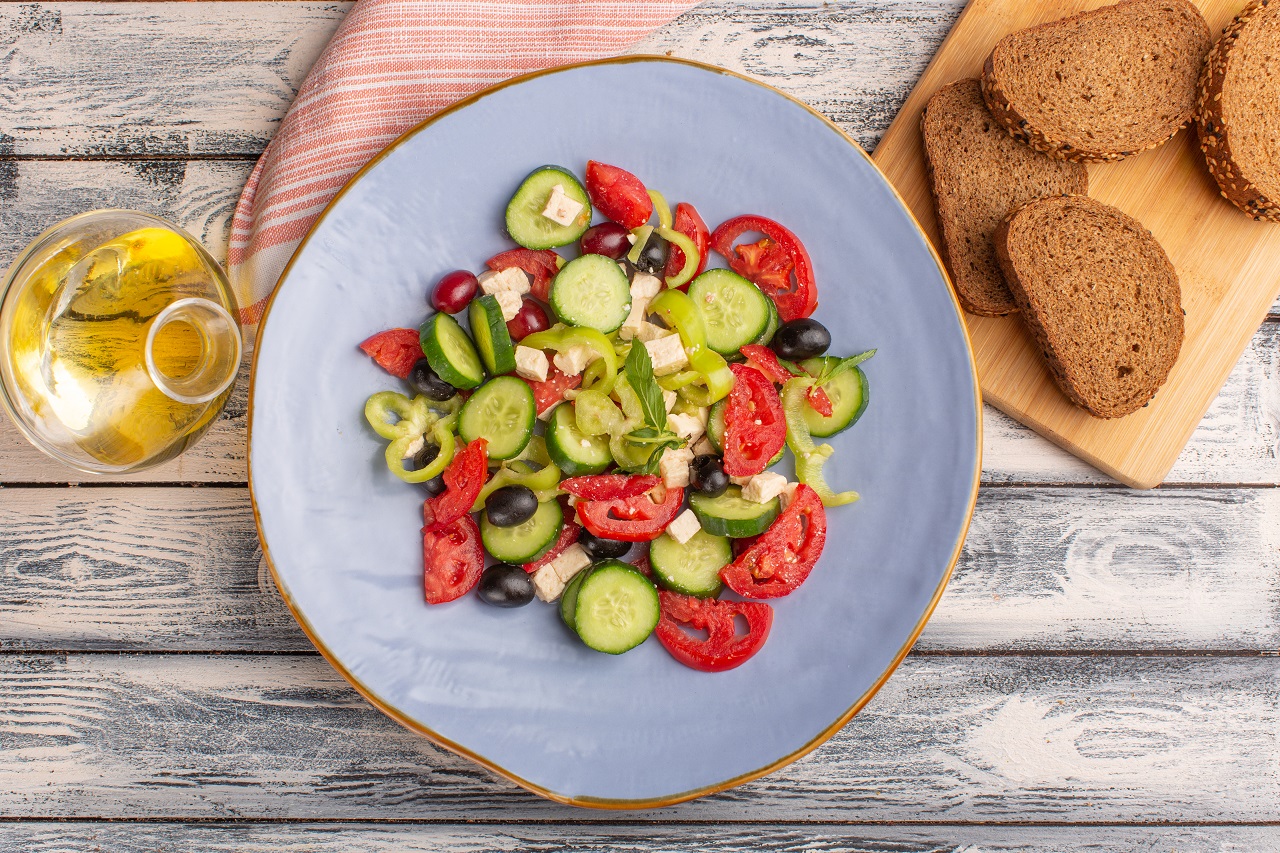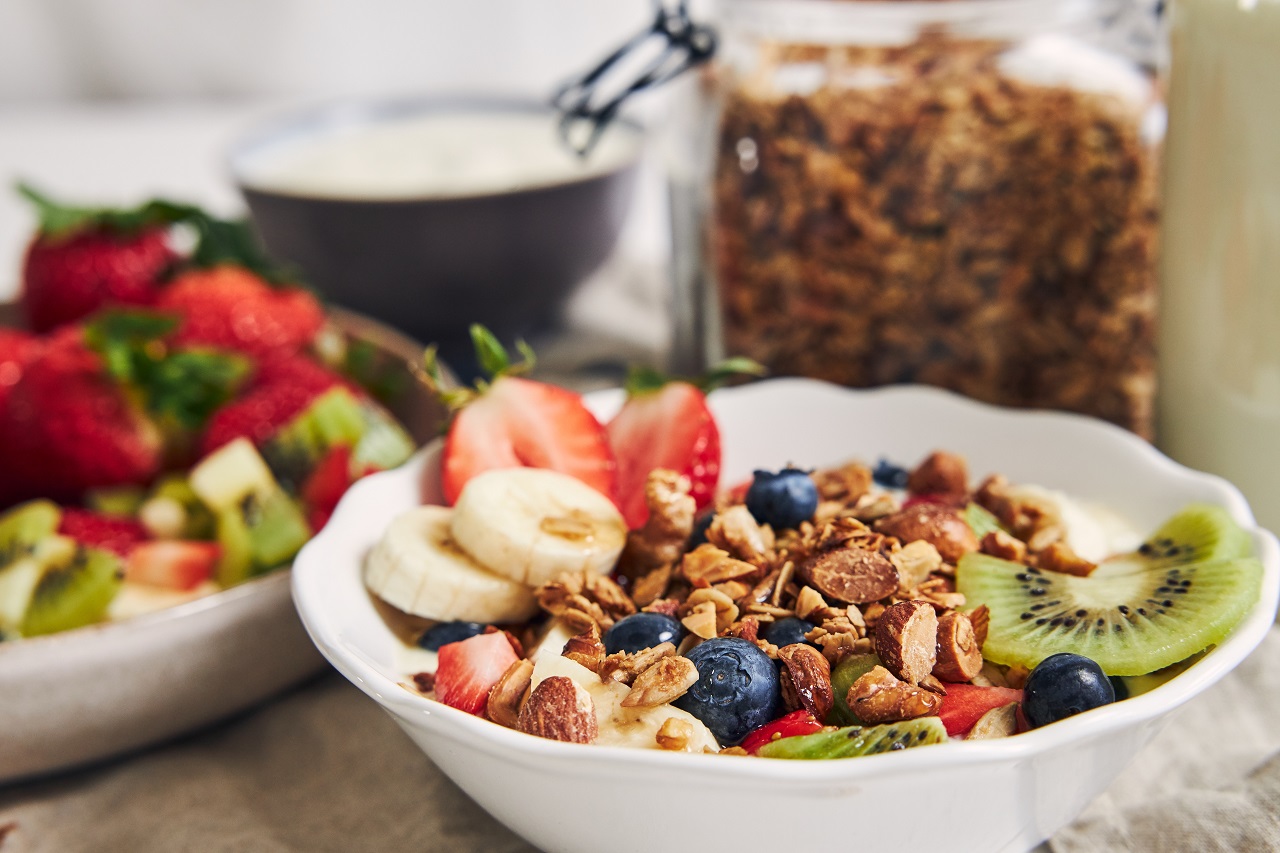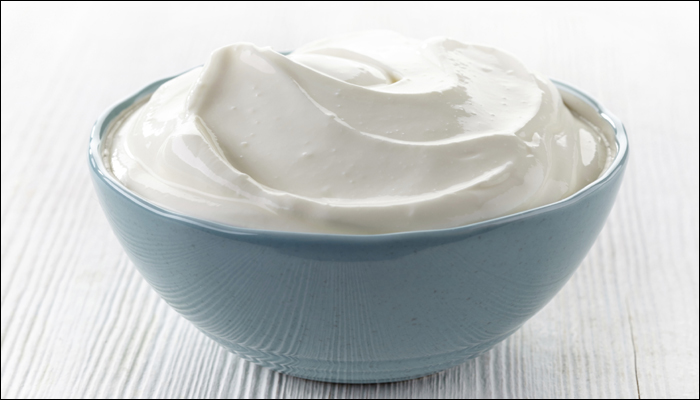 “I am not losing any weight in spite of following a healthy routine,” said one of my Players. “What did you eat for dinner yesterday?” I asked. He replied saying, “2 Rotis, 1 bowl of Rice, Dal, Subzi, 1 bowl of salad (as you have told) and 2 small gulab jamun,” I was quick in pointing out that the answer to his weight loss issue was his heavy dinner.
“I am not losing any weight in spite of following a healthy routine,” said one of my Players. “What did you eat for dinner yesterday?” I asked. He replied saying, “2 Rotis, 1 bowl of Rice, Dal, Subzi, 1 bowl of salad (as you have told) and 2 small gulab jamun,” I was quick in pointing out that the answer to his weight loss issue was his heavy dinner.
Why Should You Avoid A Heavy Dinner?
Our body works on a simple principle of demand and supply. Whenever we are more active, we need more energy. Hence, we need to eat more – which means having a heavy breakfast, a good lunch and mid meal snacks, help you stay active.
Whereas, when we aren’t quite active, we require less energy. From the time we begin our day, till night, our activity levels lower gradually (unless you work in night shifts). We really don’t require much energy when we’re going to relax post dinner and ultimately sleep. Which means, we do not need to eat as much because we won’t be burning that food for energy. If you consume more food than your body needs at night, it’s a simple recipe for weight gain!
Having a lighter dinner aids digestion and helps you better utilise the nutrients. It is advisable to have a 2 hour gap before hitting the sack. This is one way to avoid that unnecessary fat and weight gain! In order to do this, you need a plan. If you’re not in a habit of having frequent meals, and you avoid an evening snack, you’ll tend to eat more at dinner. Also, understand the psychological effect when you haven’t eaten anything post lunch, barring that cup of tea! You’ll end up feasting because your brain is telling you that you are hungry.
Some Benefits Of Eating A Light Dinner
- Aids in digestion and induces good sleep
- You will be able to get up fresh the next morning
- Helps in faster gut clearing
- Helps reducing fat & weight
- Reduces risk of lifestyle diseases like Type II Diabetes, Hypertension, High cholesterol, etc.
- Helps in reducing PCOD & Hypothyroidism
- Improves metabolism
The ideal time for dinner is near sunset 6.30- 7 pm. If you can’t manage it, then simply split your dinner between 2-3 small meals. Have an evening meal between 5-7 pm. Ideally, at the time you feel hungry post Lunch. Eat Roti,Rice, Bhakri, or whole wheat bread etc. which is carbohydrate based for the first meal. Keep the lighter part for the next one i.e. 8-10 pm. Try to keep dinner low in carbs and more in proteins & fibers as this will prevent excess calories, give you proteins for muscle building throughout the night, and enough fiber will help in gut clearing.
You can try –
Proteins: Eggs, Chicken, Paneer, Dal, Sprouts, Usal, Curd, Yogurt, Soya, or Tofu mixed with
Fiber: Soups, salads, stir fried veggies, raita, or raw veggies, etc.
It can be as simple as curd rice, Khichdi- Kadhi, etc. But, watch the carbohydrate quantity. Avoid having fruits at this time as they contain fructose which is a simple sugar. If you feel hungry again at night, drink a glass of milk with turmeric powder or a bowl of soup/salads or a few nuts.
We hope this article helps you! For more tips on healthy living and making lifestyle changes, click here or speak to an expert by subscribing for GOQii’s Personalised Health Coaching here.
Disclaimer: This article was written keeping people who are trying to lose weight and fat in mind. This may not be appropriate for growing children, teenagers, underweight people, and/or people with medical conditions. Before making any changes to your diet, consult your doctor, nutritionist or dietitian.
#BeTheForce
 While we are aware that breakfast, lunch and dinner are important meals, we overlook the fact that an evening snack is equally important. Why is that? You’ve probably heard the saying, “Eat breakfast like a king, lunch like a prince and dinner like a pauper” – but how do you eat like a pauper if you’re feeling very hungry at dinner time? We should naturally feel less hungry at the dinner time and for that, we must have a small meal 2-4 hours before dinner. It is completely okay if you do not feel that hungry for dinner after having evening snacks. In fact, that is the main purpose of it – to cut down on the dinner portion size.
While we are aware that breakfast, lunch and dinner are important meals, we overlook the fact that an evening snack is equally important. Why is that? You’ve probably heard the saying, “Eat breakfast like a king, lunch like a prince and dinner like a pauper” – but how do you eat like a pauper if you’re feeling very hungry at dinner time? We should naturally feel less hungry at the dinner time and for that, we must have a small meal 2-4 hours before dinner. It is completely okay if you do not feel that hungry for dinner after having evening snacks. In fact, that is the main purpose of it – to cut down on the dinner portion size.





